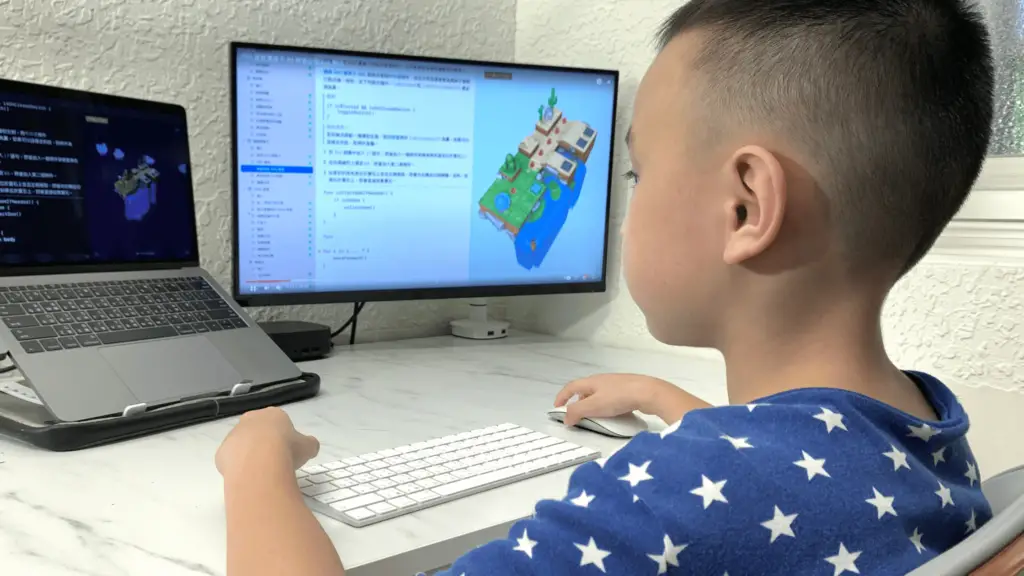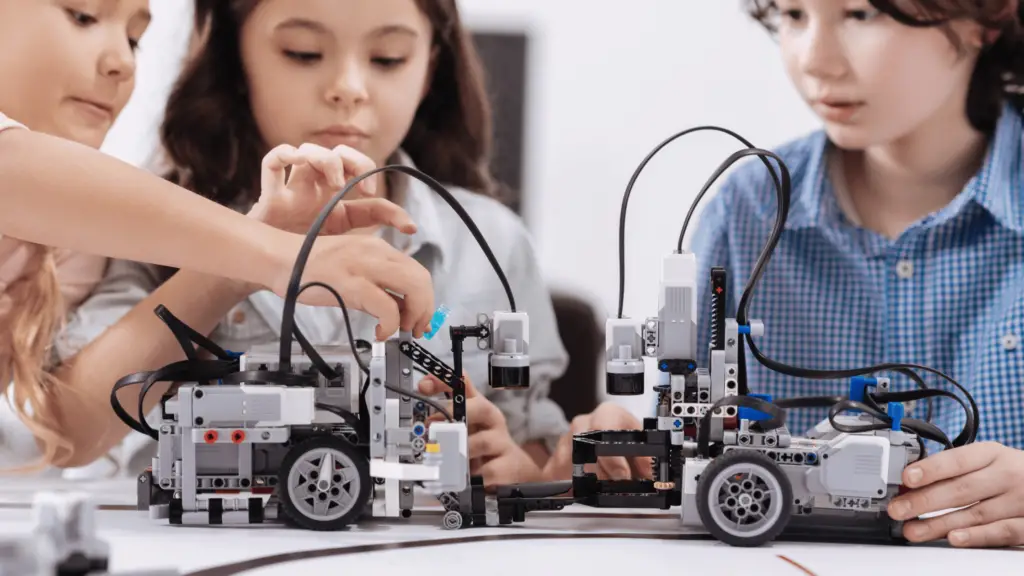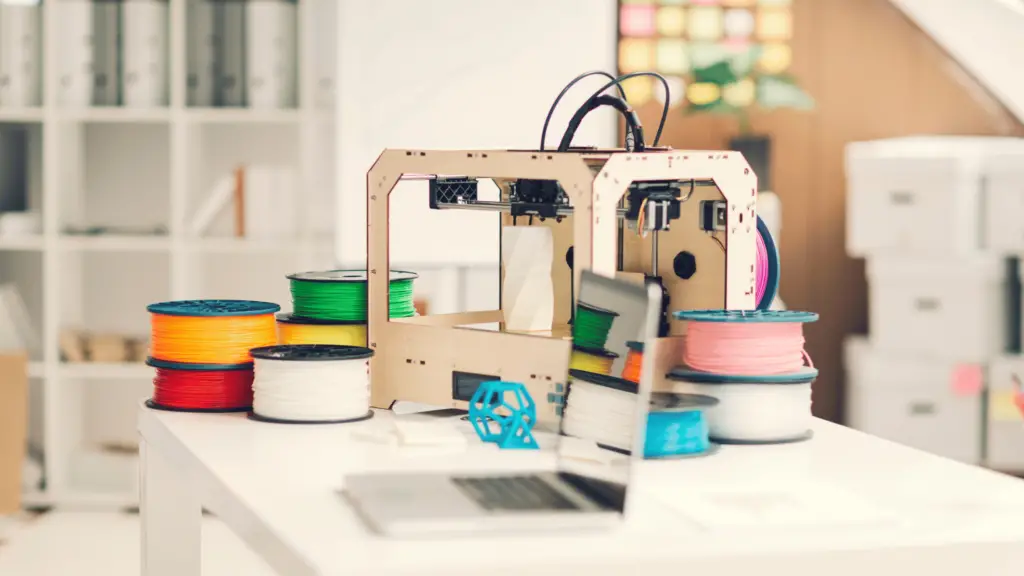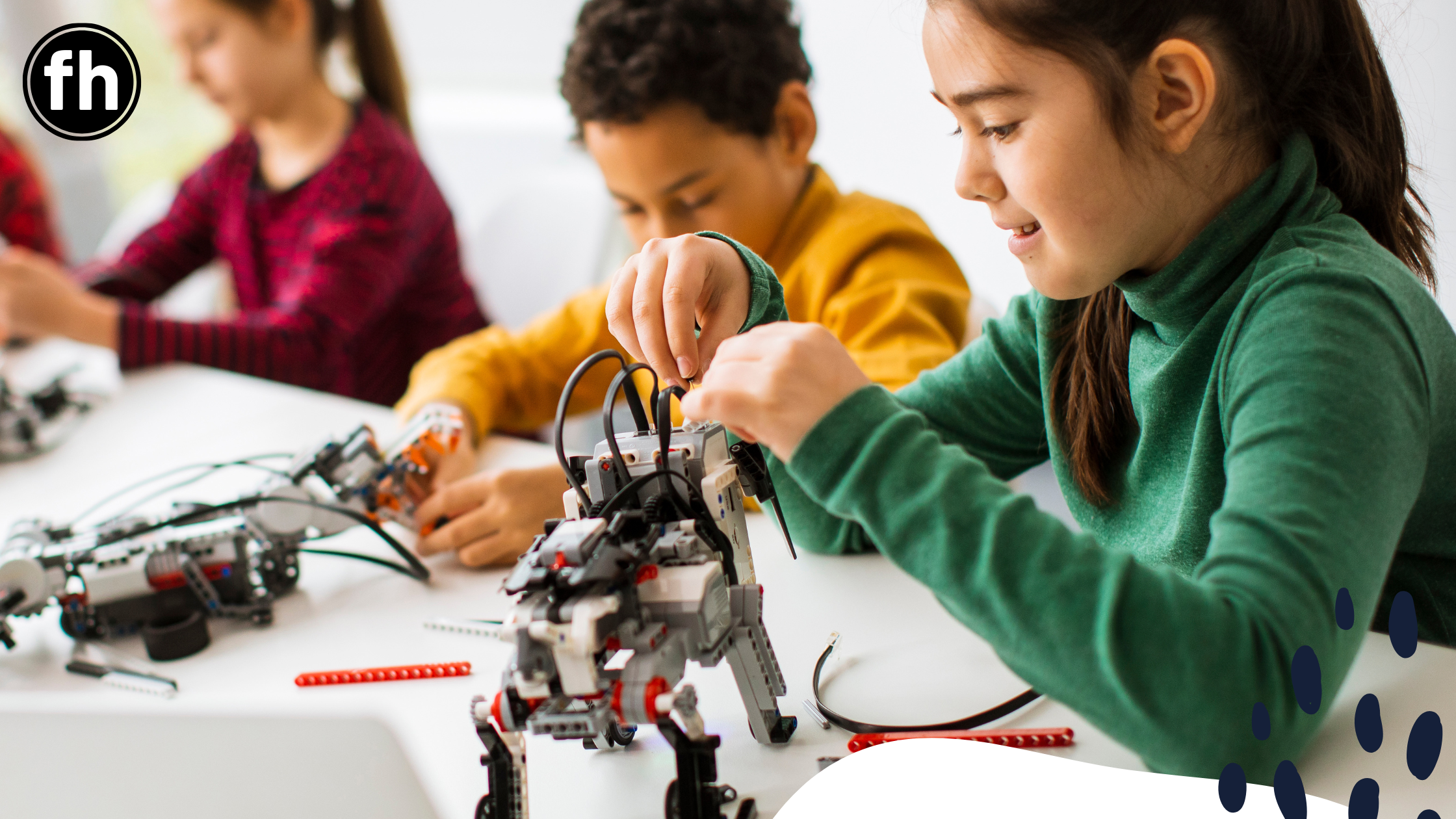Technology is rapidly changing the world we live in, and it’s more important than ever for kids to learn technology skills by means of school, free time or a tech hobby.
From coding to robotics to digital art, there are a variety of technology-based hobbies that can not only be fun and engaging for kids but also provide them with valuable skills that will help them navigate and succeed in the digital world.
In this blog post, we will explore the reasons why technology skills are important for kids to learn, and how incorporating technology-based hobbies into their lives can help them develop those skills.
We will also take a look at some of the most popular technology-based hobbies for kids and how they can benefit them in the long run.
Whether you’re a parent looking for ways to engage your child or a teacher looking for ways to incorporate technology into your curriculum, this post has something for you.
Technology Hobby Ideas for Kids
Programming & Coding
Programming is a valuable skill that can help kids learn logic, problem-solving, and critical thinking.
Scratch is a great platform for kids to learn programming basics with a visual drag-and-drop interface, while Python is a popular language for more advanced learners.
Check out a few of these online learning platforms, great for beginner kid coders:

Building and Programming Robots
Robotics is a fun and engaging way for kids to learn about mechanics, electronics, and programming.
Lego Mindstorms and Arduino are popular choices for building and programming robots, and they come with a variety of sensors and actuators that can be used to create a wide range of projects.

Video Editing
Video editing is a great way for kids to learn about storytelling, visual design, and technology. iMovie is a user-friendly video editing software for Macs, while Premiere Pro is a more advanced option for Windows and Mac.
Building and Customizing PCs or Gaming Consoles
Building a PC or customizing a gaming console can be a fun and educational hobby for kids. They can learn about computer hardware, software, and troubleshooting, as well as how to overclock and optimize performance.
3D Printing
3D printing is a great way for kids to learn about design, engineering, and manufacturing. Tinkercad and Fusion 360 are popular 3D modeling software that can be used to create a wide range of objects that can be printed on a 3D printer.

Building Websites
Building websites is a great way for kids to learn about design, coding, and technology. Squarespace and Webflow are popular platforms that allow users to create websites with minimal coding knowledge.
Check out our full post on starting a blog for tips, resources and best practices!
Circuits & Electronics
Electronics is a fascinating hobby that can help kids learn about electricity, circuit design, and programming. LittleBits and Raspberry Pi are popular options for learning about and experimenting with electronics and building projects.
Virtual Reality
Virtual reality is a rapidly growing field, and learning how to develop VR content can be a fun and engaging hobby for kids. Unity and Unreal Engine are popular platforms for developing VR content and games.
In addition to programming and developing virtual reality games, they are tons of fun to play! Virtual reality gaming is great for improving hand-eye coordination, muscle-memory and problem solving skills.
Check out the Meta Quest 2 for a good starter virtual reality headset, great for all ages!

Game Development
Game development is a fun and creative hobby that can help kids learn about design, programming, and technology. Unity and RPG Maker are popular platforms for creating 2D and 3D games.
Digital Photography & Editing
Photography is a great hobby for kids to learn about composition, lighting, and editing. Adobe Lightroom and Photoshop are popular software for editing and enhancing digital photographs.
Machine Learning
Machine learning is a rapidly growing field with many practical applications. TensorFlow and Keras are popular platforms for learning about and experimenting with machine learning.
Music Production
Music production is a fun and creative hobby that can help kids learn about sound design, composition, and technology. Ableton and Logic Pro are popular software for creating and producing music.
Music production can be a beneficial hobby for kids as it helps in developing creativity, self-expression, problem-solving skills, focus, concentration, and self-confidence.
It also exposes them to different cultures and styles of music, and inspires them to explore their own musical interests.

Building, Programming & Flying Drones
Drones are a fun and engaging hobby that can help kids learn about mechanics, electronics, and programming.
DJI is a popular manufacturer of drones that offer a variety of kits and accessories that can be used to build and program drones. A hobby of flying drones can also open the door to a hobby in aerial photography and creative videography.
Animation
Animation is a fun and creative hobby that can help kids learn about visual design, storytelling, and technology. Blender and Maya are popular software for creating and animating 2D and 3D graphics.
Developing Mobile Apps
Mobile app development is a rapidly growing field and can be a fun and engaging hobby for kids. Android Studio and Xcode are popular platforms for developing mobile apps for Android and iOS devices.

Artificial Intelligence
Artificial intelligence is a rapidly growing field with many practical applications. OpenAI and Google AI are popular platforms for learning about and experimenting with artificial intelligence.
Writing programs like ChatGPT are a fun way for users to experiment with Artificial Intelligence writing tools online.
Building and Programming Chatbots
Chatbots are becoming increasingly popular and can be a fun and engaging hobby for kids. Dialogflow and Botkit are popular platforms for building and programming chatbots.
Video Games
Video games are a popular and engaging tech hobby for kids, as they provide a fun and interactive way to learn about technology and problem-solving.
Playing video games can help kids develop hand-eye coordination, strategic thinking, and decision-making skills. They can also expose kids to different worlds, cultures, and ways of thinking, promoting creativity and imagination.
Additionally, some video games can be educational, teaching kids about history, science, and math in an interactive way.
Video games can be a great way for kids to socialize and connect with other players online or in person, which is important for child development.
With the abundance of video games available on a wide variety of platforms like PC, consoles, and mobile devices, it’s easy for kids to find games that they enjoy.

Design
Design is a versatile and creative hobby that can help kids learn about visual aesthetics, layout, and technology.
Figma and Canva are popular software for creating and designing a wide range of projects such as website layouts, graphics, and interface designs.
Figma is a web-based design tool that is used for creating and collaborating on interface designs, while Canva is a graphic design tool that is focused on creating visual content for social media, presentations, and more.
Both software are user-friendly and easy to use, making it perfect for kids to learn and explore their creativity in design.
Both Figma and Canva offer a wide range of templates, icons, and graphics which allows kids to create professional looking designs quickly and easily.
Digital Art
Digital art is a fun and creative hobby that allows kids to explore their artistic talents using technology.
With the use of software such as Adobe Photoshop, Procreate, and Krita, kids can create a wide range of digital artworks such as illustrations, comics, digital paintings, and animations.
These software offer a variety of tools such as brushes, layers, and filters which allows kids to create detailed and dynamic digital artworks.
Additionally, digital art allows for easy editing and sharing options, as well as the ability to print out their work.
Furthermore, digital art can open up new possibilities for kids, such as creating characters and worlds, concept art, and visual effects.
It is also a great way for kids to explore various art styles, techniques and mediums, and to learn about color theory, composition and lighting.
With the help of digital art software and tutorials, kids can develop and improve their skills and imagination.

Technology Hobby Benefits for Kids
Technology skills are becoming increasingly important for kids to learn, and incorporating technology-based hobbies into their lives is a great way to develop those skills. Here are a few reasons why technology skills are important for kids to learn:
Technology is a part of everyday life: Whether it’s using a computer to do homework or browsing the internet for information, technology is a part of our daily lives. By learning technology skills, kids will be better equipped to navigate and make the most of the digital world around them.
Technology skills can lead to future career opportunities: Many jobs in today’s economy require technology skills. By learning technology skills through hobbies, kids will be better prepared for future job opportunities in fields such as programming, web development, and data analysis.
Technology skills can foster creativity and innovation: Technology-based hobbies such as game development, 3D printing, and video editing allow kids to explore their creativity and come up with new and innovative ideas.
Technology skills can help kids stay connected: With the rise of social media and instant messaging, technology has made it easier for people to stay connected with one another. By learning technology skills, kids will be able to use these tools to stay in touch with friends and family, and to make new connections.
Technology skills can help kids learn other skills: Many technology-based hobbies, such as programming and robotics, require kids to learn problem-solving, logical thinking, and critical thinking skills. These skills can be transferred to other areas of life, making kids more effective learners and problem solvers.

Conclusion
Technology skills are becoming increasingly important for kids to learn, and incorporating technology-based hobbies into their lives is a great way to develop those skills.
Not only do technology-based hobbies provide kids with valuable skills, but they also provide a fun and engaging way to learn.
So, it’s not just about providing kids with the latest gadgets but providing them with the tools to be creative, innovative, and successful in the digital world.





